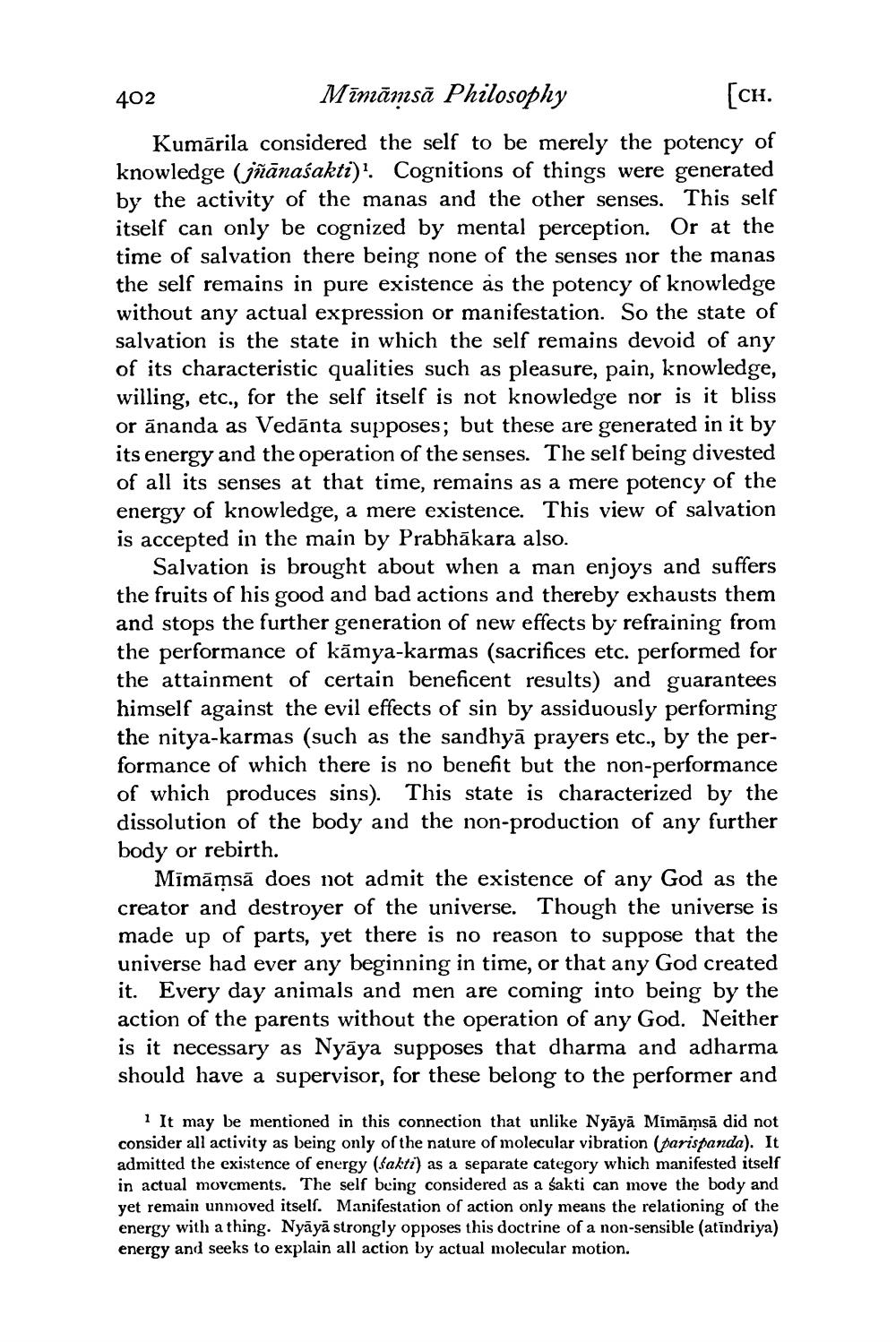________________
Mimämsä Philosophy
[CH.
Kumārila considered the self to be merely the potency of knowledge (jñānaśakti)1. Cognitions of things were generated by the activity of the manas and the other senses. This self itself can only be cognized by mental perception. Or at the time of salvation there being none of the senses nor the manas the self remains in pure existence as the potency of knowledge without any actual expression or manifestation. So the state of salvation is the state in which the self remains devoid of any of its characteristic qualities such as pleasure, pain, knowledge, willing, etc., for the self itself is not knowledge nor is it bliss or ananda as Vedanta supposes; but these are generated in it by its energy and the operation of the senses. The self being divested of all its senses at that time, remains as a mere potency of the energy of knowledge, a mere existence. This view of salvation is accepted in the main by Prabhakara also.
402
Salvation is brought about when a man enjoys and suffers the fruits of his good and bad actions and thereby exhausts them and stops the further generation of new effects by refraining from the performance of kamya-karmas (sacrifices etc. performed for the attainment of certain beneficent results) and guarantees himself against the evil effects of sin by assiduously performing the nitya-karmas (such as the sandhyā prayers etc., by the performance of which there is no benefit but the non-performance of which produces sins). This state is characterized by the dissolution of the body and the non-production of any further body or rebirth.
Mīmāmsā does not admit the existence of any God as the creator and destroyer of the universe. Though the universe is made up of parts, yet there is no reason to suppose that the universe had ever any beginning in time, or that any God created it. Every day animals and men are coming into being by the action of the parents without the operation of any God. Neither is it necessary as Nyaya supposes that dharma and adharma should have a supervisor, for these belong to the performer and
1 It may be mentioned in this connection that unlike Nyāyā Mīmāmsā did not consider all activity as being only of the nature of molecular vibration (parispanda). It admitted the existence of energy (fakti) as a separate category which manifested itself in actual movements. The self being considered as a sakti can move the body and yet remain unmoved itself. Manifestation of action only means the relationing of the energy with a thing. Nyaya strongly opposes this doctrine of a non-sensible (atīndriya) energy and seeks to explain all action by actual molecular motion.




